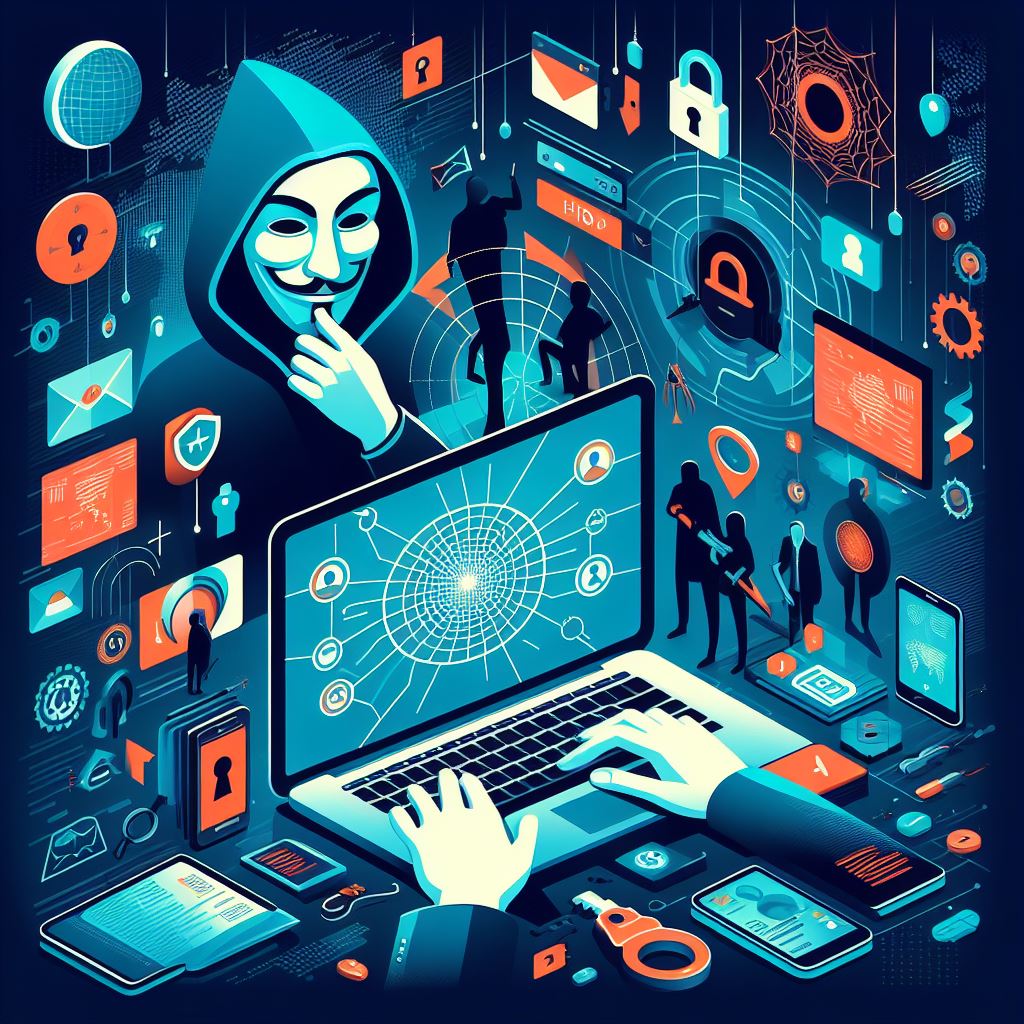
How To Get On The Dark Web
How To Get On The Dark Web:
The dark web—a mysterious realm that exists beyond the familiar surface of the internet—has captured the curiosity of many. Whether you’re an intrepid explorer or a cautious seeker, understanding how to access this hidden part of the web is essential. In this comprehensive guide, we’ll delve into the intricacies of the dark web, demystify its layers, and provide step-by-step instructions for accessing it safely.
1. What Is the Dark Web?
The term “dark web” evokes intrigue and secrecy. Imagine a hidden corner of the internet where conventional search engines fear to tread. Here’s what you need to know:
- Definition: The dark web comprises web content existing on darknets, specialized overlay networks that require specific software, configurations, and authorization for access.
- Anonymity: Users navigate the dark web anonymously, shielding their identities from prying eyes.
- Tor Browser: The most well-known tool for accessing the dark web is the Tor browser, which creates encrypted pathways for secure browsing.
2. Distinguishing the Deep Web from the Dark Web
Before diving in, let’s clarify some terminology:
- Surface Web: The part of the web indexed by search engines (Google, Bing, etc.) that we interact with daily.
- Deep Web: Content not indexed by search engines, including private databases, medical records, and research papers.
- Dark Web: A subset of the deep web, accessible via darknets. It hosts hidden websites, forums, and services.
3. Why Access the Dark Web?
While the dark web has a notorious reputation, it serves various purposes:
- Censorship Evasion: Journalists and activists use it to access censored news and information.
- Privacy: Whistleblowers and dissidents communicate securely.
- Research: Academics explore hidden databases and resources.
- Curiosity: Some seek the thrill of the unknown.
4. Safety Precautions and Legal Considerations
Before venturing into the dark web, consider these precautions:
- Legal Boundaries: Understand the legal implications of your actions. Not everything on the dark web is illegal, but tread carefully.
- Security Measures:
- Tor Browser: Download and install the Tor browser.
- VPN: Use a virtual private network (VPN) for added security.
- Caution: Avoid suspicious links and illegal activities.
5. How to Get on the Dark Web: A Step-by-Step Tutorial

How to Get on the Dark Web: Follow these steps to explore the dark web responsibly:
- Download Tor:
- Visit the official Tor Project website and download the Tor browser.
- Install it on your device.
- Configure Tor:
- Launch the Tor browser.
- Connect to the Tor network by clicking “Connect” or “Start.”
- Explore Hidden Services:
- Use the Tor browser to access .onion websites (unique to the dark web).
- Be cautious—some sites may contain illegal content.
- Stay Anonymized:
- Avoid revealing personal information.
- Disable browser plugins and extensions.
- Use Common Sense:
- Stick to reputable .onion sites.
- Don’t engage in illegal activities.
Remember, the dark web is a double-edged sword. While it offers privacy and anonymity, it also harbors risks. Approach it with awareness, curiosity, and a commitment to responsible exploration.
Now that you’re armed with knowledge, venture forth into the shadows—but always keep your wits about you. 🌐🔍🌒
How To Get On The Dark Web: Other Dark Web Browsers

While the Tor Browser is the most well-known and widely used browser for accessing the dark web, there are other options available. Let’s explore a few:
- Tor Browser:
- Description: Tor Browser is a free and open-source software that protects you against tracking, surveillance, and censorship. It lets you access the dark web and other hidden services, but also requires some precautions and configuration1.
- Features:
- Anonymity: Tor routes your internet traffic through a network of volunteer-operated servers, making it difficult to trace your online activities.
- Encryption: All data transmitted through Tor is encrypted, enhancing privacy.
- Access to .onion Sites: Tor allows you to visit .onion websites unique to the dark web.
- I2P (Invisible Internet Project):
- Description: I2P is an anonymous overlay network that focuses on secure communication and decentralized services.
- Features:
- Hidden Services: I2P hosts its own hidden services similar to .onion sites.
- Private Messaging: Users can send encrypted messages within the network.
- Resilience: I2P is designed to withstand attacks and censorship.
- Freenet:
- Description: Freenet is a decentralized peer-to-peer network that emphasizes privacy and freedom of speech.
- Features:
- Content Sharing: Freenet allows users to publish and retrieve information anonymously.
- Distributed Storage: Content is distributed across the network, making it resistant to censorship.
- Darknet Mode: Freenet’s darknet mode ensures connections only within the Freenet network.
- Whonix:
- Description: Whonix is not a browser but an operating system designed for maximum security and privacy.
- Features:
- Isolation: Whonix runs inside a virtual machine, separating the user’s activities from the host system.
- Tor Integration: Whonix routes all internet traffic through Tor by default.
- Anonymous Workstation: The workstation environment ensures privacy.
- Subgraph OS:
- Description: Subgraph OS is another security-focused operating system.
- Features:
- Hardened Security: Subgraph OS includes security enhancements to protect against attacks.
- Tor Integration: It routes traffic through Tor for anonymity.
- Application Firewall: Subgraph isolates applications to prevent leaks.
Remember that while these browsers enhance privacy and anonymity, the dark web can be a risky place. Exercise caution, follow legal guidelines, and explore responsibly.
How To Get On The Dark Web: Is it legal to use Dark Web Browsers?

How to Get on the Dark Web: Let’s explore the legal aspects of using dark web browsers:
- Legality and Intent:
- Legal Use: The act of using dark web browsers itself is not illegal. These browsers, such as the Tor Browser, are legitimate tools designed to enhance privacy and anonymity.
- Intent Matters: However, legality depends on your intent. If you use dark web browsers for legal purposes (research, privacy, or accessing uncensored information), you’re within legal boundaries.
- Illegal Activities: Engaging in illegal activities on the dark web (such as buying/selling drugs, weapons, or participating in cybercrime) is against the law.
- Privacy and Anonymity:
- Dark web browsers prioritize privacy and anonymity. They allow users to access hidden services without revealing their identities.
- Tor Network: Tor (The Onion Routing) is widely used for this purpose. It encrypts traffic and routes it through multiple servers, making tracing difficult.
- Legal Concerns:
- Country-Specific Laws: Legalities vary by country. Some nations restrict or monitor the use of dark web tools.
- Know Your Local Laws: Familiarize yourself with your country’s laws regarding privacy, encryption, and internet usage.
- Ethical Considerations:
- While legality is crucial, consider ethical implications too.
- Responsible Exploration: Use dark web browsers responsibly, respecting legal boundaries and avoiding harmful activities.
Remember, the dark web is a complex space with both legitimate and illicit content. Use these tools wisely, stay informed, and prioritize legal and ethical behavior. 🌐🔒
Disclaimer: This guide is intended for legal and legitimate purposes. We do not endorse or encourage illegal activities on the dark web.
Website Performance Test – How to Monitor





